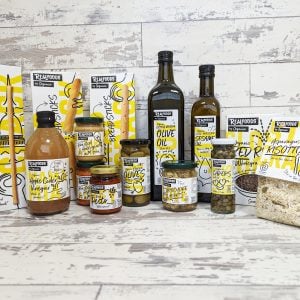
New research showing the catastrophic consequences of over-reliance on ultra-processed food should prompt more independent food retailers to promote the health benefits of their produce, key figures have urged.
An academic study led by Australia’s Deakin University published in the British Medical Journal found an alarming connection between eating heavily altered products and serious illness.
“Greater exposure to ultra-processed food was associated with a higher risk of adverse health outcomes, especially cardiometabolic, common mental disorder and mortality outcomes,” it warned.
Laura Roberts, owner of Laura’s Larder in Bromley said public awareness of the link between regularly eating heavily manufactured items and getting sick presented a “huge opportunity” for specialists.
“Marketing the benefits beyond quality is an area we sometimes fall down on,” she said. “Conversationally we are doing it well but we haven’t worked out how to capture it in our messaging.
“Keeping ultra-processed food intake down is on the agenda and it goes hand-in-hand with food miles and quality. We have a locally made granola, and eating that every day will be better for you than most supermarket-bought cereal.”
Although heavily altered meals can be cheaper than artisan alternatives, if their nutritional value is lower, people might end up eating again, making them a “false economy” according to Roberts.
She called for the government to create a mandatory processing score for food labels.
“It makes me angry that we have to prove we are good but people don’t have to do anything to say they are bad.”
Tash Gorst, co-founder of Gather in London, also called on ministers to intervene.
“It would be good if government could do something to help – good food is better for everyone and better for the state,” she said. “Also the more people eat good food, the cheaper it will become.”
Gorst mooted the idea of direct funding for unprocessed produce.
“Cost is a big barrier. Subsidies would help, perhaps to wholesalers with a mandate to pass the saving on to customers.”
Sangita Tryner, founder of Delilah Fine Foods, said footfall had risen in the Nottingham deli in line with increased chatter about the dangers of ultra-processed food.
“There is an opportunity for the sector to talk more about the health benefits,” she said.
“Do bigger delis put resource into it to spread the word or do they rely on people knowing it? We hold regular events, which give us the opportunity to talk to people.
This article first appeared in the April 2024 edition of Fine Food Digest .



